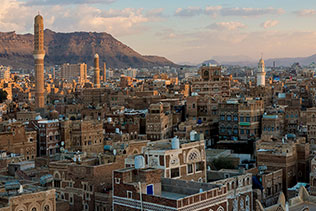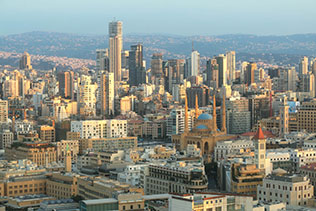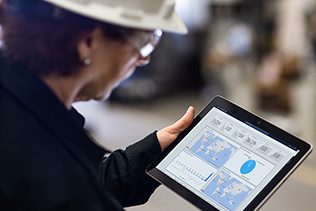REBUILDING BEIRUT BEFORE WINTER
The race to get Beiruti families back home to a rebuilt city.


“When a vast quantity of ammonium nitrate exploded in a warehouse in Beirut, buildings as far as six miles away were damaged by the blast, leaving 300,000 people homeless.

The community immediately rallied, looking for ways to help those who had been displaced – rebuilding was a top priority. MAN Enterprise, a multinational construction giant based in Beirut, Lebanon, was part of this community. The company started in Beirut and has an active presence in the construction scene in Lebanon and the MENA region - since its first contract 50 years ago, it has been responsible for many of Lebanon’s most recognizable landmarks.
Working with local social justice NGO Solidarity, MAN Enterprise launched #AliveBeirut – with a mission to return as many families as possible to their homes before winter. They knew that such a colossal undertaking would require meticulous planning, yet it wasn’t until the project had started that technology was proven crucial for keeping the project on track.
Precision planning
The construction company began the work by sending 20 surveyors to evaluate sites across the devastated area surrounding Beirut’s port. They first identified displaced people who were mostly in need and whose houses needed reconstruction. After this, they assessed the damage, delivering a Bill of Quantities to three subcontractors to price materials, labor requirements, and costs.
Progress was slow. The surveyors worked with pen and paper, manually filing their reports. There was no centralized log, and with payments made weekly, delays and human error inevitably crept into the process.


It was at this point the team decided they had to digitize the process to meet their winter deadline. The initial months-long estimates from local software developers to create a bespoke platform would take any hope of rehoming the displaced families, so MAN Enterprise began looking for more readily available solutions.
That’s when they discovered Microsoft Power Platform, a suite of easy to use cloud-based development tools designed to enable even novice users to build personalized apps and workflows with very little coding required. The days of pen and paper were over.
Bringing Beirut back to life
In just two weeks – and with no prior coding experience – the in-house civil engineers had created their own bespoke project management platform using Microsoft Power Apps.
The platform used Bing maps to visualize all 700 sites (till date), helped to assign contractors based on location and skills. Augmented Reality (AR) tools were available for surveyors to assess dimensions more accurately – automatically sending data with Microsoft Power Automate to customized Bill of Quantities for procurement.
Work data, including progress updates, productivity rates, and client satisfaction surveys, were centralized and fed into Microsoft Power BI for visualization and analysis.
Crucially, contractors collected ‘before’ and ‘after’ images, not only for quality control but to ensure all work was in keeping with the city’s heritage, bringing the Beirut everyone knows and loves back to life.

Home again
Within eight months of launching #AliveBeirut, MAN Enterprise and Solidarity had brought 700 families back home – 40% faster than first estimated.
The improved efficiency – alongside centralized, transparent pricing – also helped bring the project in 25% under budget, freeing valuable resources to continue the vital work of rebuilding Beirut and returning displaced Beirutis home.














































